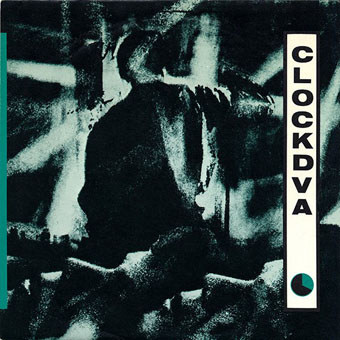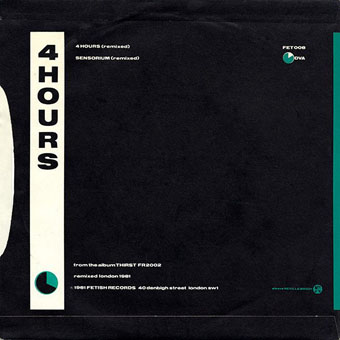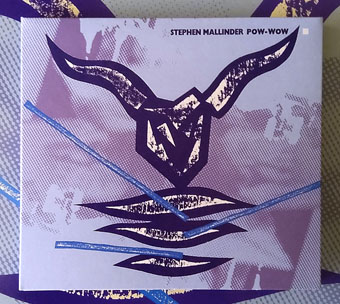
The debut solo album by Stephen Mallinder of Cabaret Voltaire received an overdue reissue on the Ice Machine label a few weeks ago; my CD turned up yesterday. Pow-Wow was one of the last albums released by Fetish Records in 1982, and it’s always been one I preferred to the solo recordings by Mallinder’s much more prolific colleague, Richard H. Kirk. Away from Cabaret Voltaire, Kirk and Mallinder’s music is mostly instrumental but the latter had a very different sound, dubbier and much more rhythmic than Kirk’s abrasive distortions. The longer pieces on Pow-Wow work variations on the energetic industrial funk developed by the Cabs and 23 Skidoo, benefiting a great deal from Mallinder’s dominant bass and insistent rhythms for which he was aided by Cabaret Voltaire’s regular percussionist, Alan Fish. Last Few Days, the most mysterious of Britain’s early Industrial groups, receive a credit for “chance element”. Mallinder sings on a couple of the tracks (if his whispered growl can be described as singing) while taped voices fill out the spaces elsewhere: a ménage à trois on Three Piece Swing, a voice from an assassination drama (Executive Action?) identifying the speaker as “Lee Harvey Oswald”, and so on. A handful of shorter pieces that run for less than two minutes are little more than looped sketches, but the unidentifiable analogue sources still sound unusual and original today, unlike synth-heavy albums from the same period.
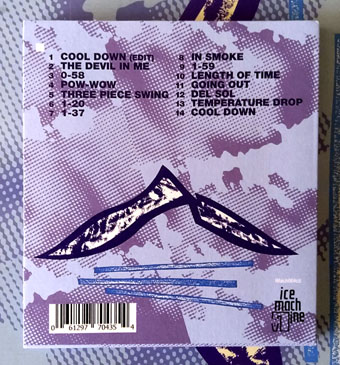
Mallinder’s other solo recordings from this time were just as good: a 12-inch single, Temperature Drop/Cool Down, and Del Sol, his uptempo contribution to the Fetish compilation/memorial album, The Last Testament. Cabs-affiliated groups like Hula and Chakk aimed for a similar blend of industrial menace and danceable grooves but the results were seldom as successful. Mallinder’s greater experience shows on these recordings, the best of which are the equal of anything that Cabaret Voltaire was doing at the time.
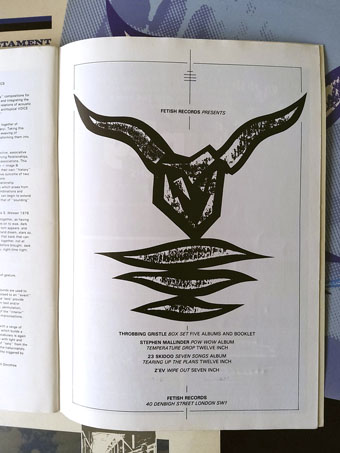
A Fetish ad from the Neville Brody-designed event booklet for The Final Academy, 1982.
The sleeve design by Neville Brody is another plus, vying with his cover art for Thirst by Clock DVA for being the most cryptic design among the many covers he produced for Fetish Records. The designer revealed his rationale in The Graphic Language of Neville Brody (1988):
This sleeve was about human ritual and human slaughter. In the media world of newscasters and advertisers everybody becomes a viewer; conditioned to regard other people’s sufferings as no more than a form of entertainment. The bullring is a metaphor for this.
A good example, then, of a cover that means more to the designer than to the record owner.
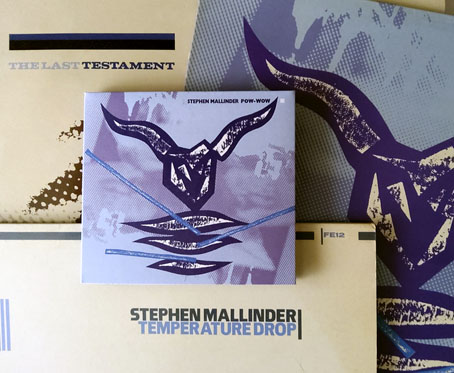
All design by Neville Brody.
The new edition of Pow-Wow improves on the original and the scarce reissues by bundling the album with Del Sol, both tracks from the 12-inch single and an edit of Cool Down from a Japanese release. It also includes one of the shorter tracks which for some reason was missing from previous reissues (this and the long version of Cool Down are from vinyl sources). I’ve had all of this material for many years so didn’t really need the CD, but my records are a little worn through over-use, and besides which, these are cult works.
Previously on { feuilleton }
• TV Wipeout revisited
• Doublevision Presents Cabaret Voltaire
• Just the ticket: Cabaret Voltaire
• European Rendezvous by CTI
• TV Wipeout
• Seven Songs by 23 Skidoo
• Elemental 7 by CTI
• The Crackdown by Cabaret Voltaire
• Neville Brody and Fetish Records

